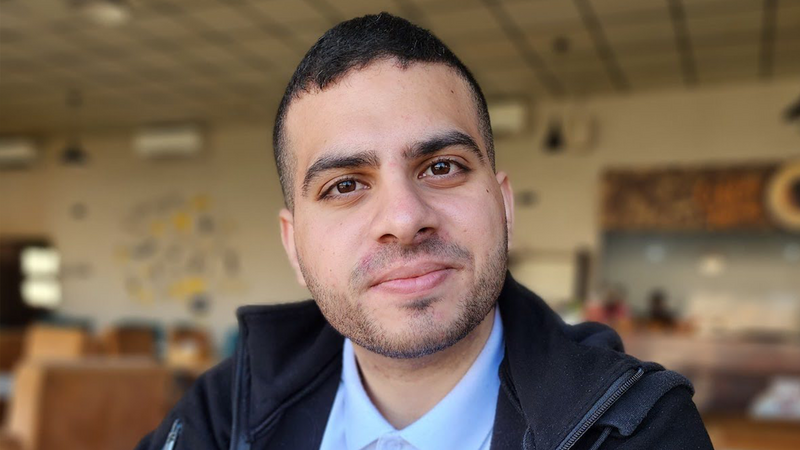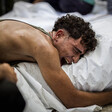The Electronic Intifada 20 June 2025

Muhammad al-Batrawi was calm, devout and could always make us smile.
Muhammad al-Batrawi had a calm demeanor. He always seemed to smile before speaking.
I met him in February 2023 at Gaza Sky Geeks, a tech hub in al-Rimal that offered various technology-focused training courses.
We were in the same cohort of the Code Academy course where we learned programming.
We would spend long hours in front of our laptop screens – writing codes, solving problems and exchanging ideas.
Muhammad was passionate about technology.
He dreamed of becoming a game developer. He wanted to create something meaningful – a game that told stories and would make an impact, whether by bringing joy to players or by offering educational value.
Muhammad was my friend. He made me believe that dreams – no matter how distant they seemed – were worth pursuing.
He also believed that part of his success depended on seeing those around him succeed too. He shared his knowledge and never hesitated to explain a concept or help one of us understand a difficult piece of code.
When one of our colleagues, Ahmad, was unable to attend his scheduled presentation, Muhammad stepped in without hesitation and delivered the presentation on Ahmad’s behalf. He wasn’t obligated to do so, but he did it out of kindness and a genuine desire to see others succeed.
Muhammad was also a devout person, and was committed to reading the Quran. It wasn’t just a habit – it was a source of strength for him.
He would tell me about his younger brother, Anas, who scored 98 percent in the tawjihi, the high school leaving exams, in 2023. Anas had hoped to study medicine before war erupted after 7 October 2023, and I congratulated Muhammad on his brother’s academic excellence.
Determined
During the genocide, Muhammed regularly checked in on me and his colleagues in the cohort via our Discord group.
During the brief ceasefire that started in January, he had begun working as a programming instructor.
He rented a space near his house in Khan Younis, equipped it with what he could manage, a few chairs and tables, a screen and an internet connection, and began offering courses in February to share his knowledge with others.
He was passionate about his students and would tell me how he was happy to see his expertise reflected in the progress of the young people he taught.
In the beginning of March, Muhammad told me about his five-year plan. He was working on his own center, where he would provide his expertise and teach programming to the enrollees, and learn from them at the same time. This, he told me, would allow him to stay up to date with the latest developments.
He saw his path clearly, and I could clearly see his determination.
On 20 March, one of my colleagues at the cohort sent me a message in the morning: Muhammad’s house in Khan Younis had been bombed.
Muhammad, his sister Rawan and their parents had all been killed.
So was Anas.
I couldn’t believe the message when I read it. I rushed to try and call him many times, hoping it wasn’t true.
But my calls went unanswered.
I couldn’t comprehend what was happening. Muhammad had messaged me just a few days earlier and expressed his relief that no one from our Code Academy cohort had been hurt so far.
I couldn’t process how someone like Muhammad could be gone so suddenly.
Be patient
Muhammad is gone, but his memory lingers in our conversations, every time we recall a moment with him, in the way we still laugh at his jokes and at how he used to laugh at our coding mishaps.
I remember one time we spent hours trying to fix a problem, only for him to take a quick look, fix one semicolon and then, after a short pause, laugh out loud.
He was enormously supportive and patient when explaining the most difficult programming concepts.
Whenever I struggled with a coding problem, he would smile with confidence and say, “There’s no problem without a solution – it just takes a little patience.”
He had this unique ability to make everything feel manageable.
But he never told me how to manage the news of his death.
There are no more lines of code for Muhammad to write. His dream to become a game developer will never be completed because Israel killed him.
But he had left behind a mark that can never be erased – everyone who knew him carries a part of his story, his passion and his way of facing challenges.
Helena Jawad Darwish is a writer from Khan Younis in the Gaza Strip.


